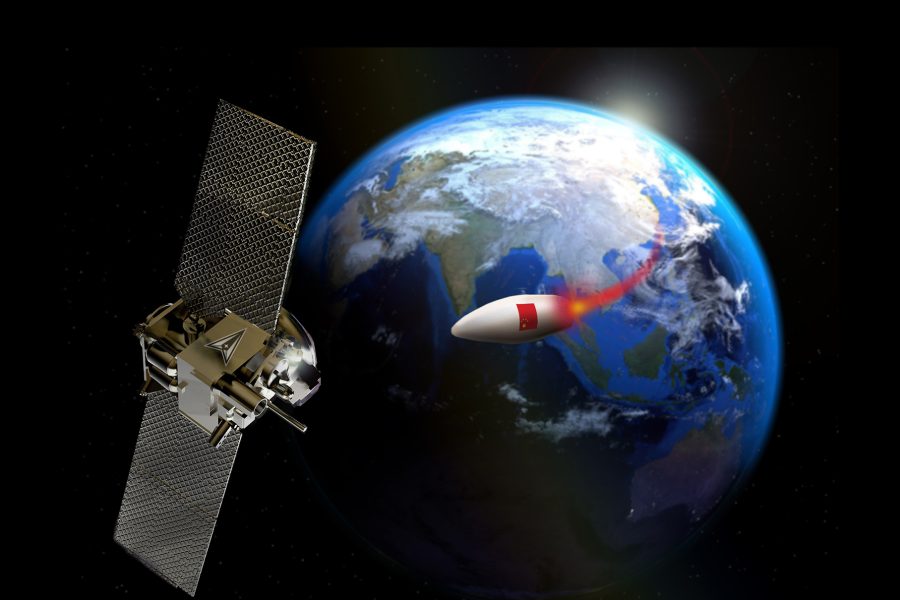The Space Force needs to invest more resources in cutting-edge technologies—including launch and simulation capabilities—to maintain the upper hand over China in space, according to a congressional commission tasked with tracking threats from Beijing.
In its annual report to Congress, the U.S.-China Economic and Security Review Commission highlights China’s “aggressive long-term, whole-of-government campaign” to gain an edge over the U.S. in space.
“These rapid advances in space pose an escalating threat to U.S. national security, intensify U.S.-China strategic competition for international partnerships, and undermine the ability of U.S. commercial firms to compete internationally,” the report states.
Over the last decade, Beijing has significantly increased its presence in space—today it has more than 1,000 satellites in orbit, almost half of which are designed to surveil and target the U.S. military. Those ISR and positioning, navigation and timing spacecraft make up the backbone of the People’s Liberation Army’s “kill mesh” network designed to collect and fuse data and observations and use it to target U.S. assets and forces.
The Chinese government has also invested in and leveraged its commercial space industrial base to drive down the cost of launch and satellite manufacturing and fuel new technologies like robotic arms.
“The dual-use nature of these systems—compounded by blurry lines between the state-owned enterprises and nominally private firms—makes it difficult to distinguish commercial innovation from military capability,” the commission writes. “In just 10 years, China has dramatically transformed an almost nonexistent commercial space sector into a thriving, state-orchestrated startup ecosystem.”
China’s progress in space has significant implications for the Pentagon and the rest of the U.S. Losing ground means potentially losing control of critical infrastructure and rulemaking opportunities in the domain. Beijing has also used its space growth to forge stronger partnerships with countries who seek access to PNT capabilities and other technologies. That not only presents national security risks, but could reduce the market share for U.S.-based commercial space firms.
“By offering favorable launch terms and free access to the BeiDou satellite navigation network and embedding technologies from firms such as Huawei into critical infrastructure, China has sought to bind these nations into its technological ecosystem, creating long-term economic and strategic dependencies in its favor,” the report states.
To counter these advancements, the commission calls on Congress to either increase or reallocate annual funding to support Space Force missions. The report doesn’t recommend particular funding levels, but the proposal echoes Space Force leaders who have said the service’s budget will need to double or triple in the coming years.
Specifically, the report calls for more investment in realistic threat modeling and simulation as well as wargaming tools to train operators. The Space Force is taking steps to improve its operational test and training infrastructure, and its fiscal 2026 budget request includes $141 million to build out a National Space Test and Training Complex, essentially a network of interconnected physical and digital ranges.
The commission also recommends more legislative branch oversight of U.S. space technology development and the health of the space industrial base. It proposes the National Space Council increase its outreach with allies and partners who rely on the U.S. for launch access to ensure the it remains “the partner of choice” for both government and commercial launch.
To keep tabs on China’s commercial space sector, the commission suggests that DOD should coordinate with the Commerce, State, and Treasury Departments to produce an unclassified report on Beijing’s dual-use space capabilities and how they support the PLA.
“The next five years could determine a generation of market dynamics in reusable launch and proliferated LEO satellite constellations—where China’s ambitious plans could lead to a scarcity of orbits, limiting future competitors,” the commission writes. “Winners of this commercial competition will gain geopolitical influence and military advantage.”


